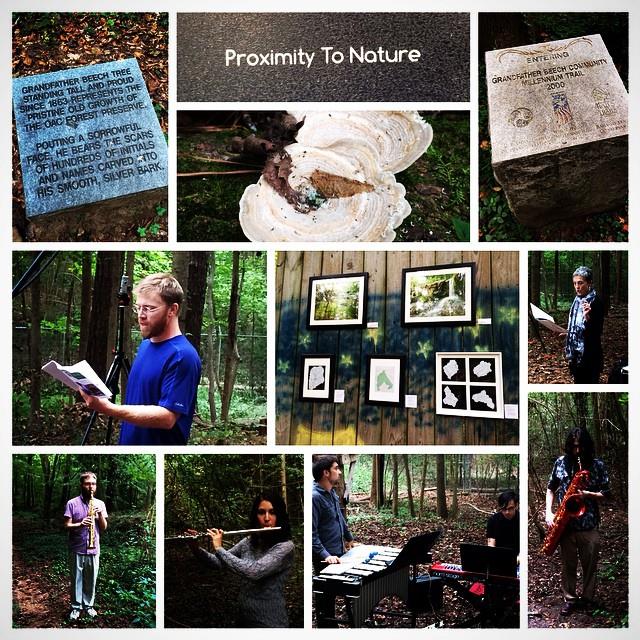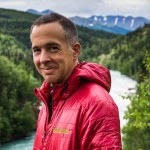
Photographs from the 2014 Wilderness Act Performance Series at the Outdoor Activity Center in Atlanta, GA. Proximity to Nature by Shawn Taylor and Proximity Viz, LLC. Left to right, middle: Stephen Wood, composer/director; Marti Keller, poet. Bottom: Tim Crump, saxophone; Jessica Sherer, flute; Nick Johns, piano/Corey Denham, percussion; Eric Fontaine, saxophone.
Stephen Wood is an Atlanta-based composer, performer, and naturalist who creates classical and jazz music in conversation with wilderness advocacy and environmental education.

Stephen Wood in Southern Nantahala Wilderness Area.
I asked Stephen, who is a member of the Landscape Music Composers Network, to share some of the ideas and experiences behind his innovative concerts and educational programs, in particular, and to elucidate his vision of how music acts as a catalyst for reconnecting us to our environment.
Stephen writes: “My current work as a composer, educator, and environmentalist is concerned with advocating for our National Preservation System and awakening our human connection to Earth. I do this first by composing music in different genres inspired by these natural themes. Additionally, I participate in and create Artist Residencies for our National Wilderness Preservation System, producing site-specific concerts and “Art Hikes” celebrating human connections to Nature, and presenting my educational workshop “Inspiring Stewardship” in music and science classes.” Continue reading


